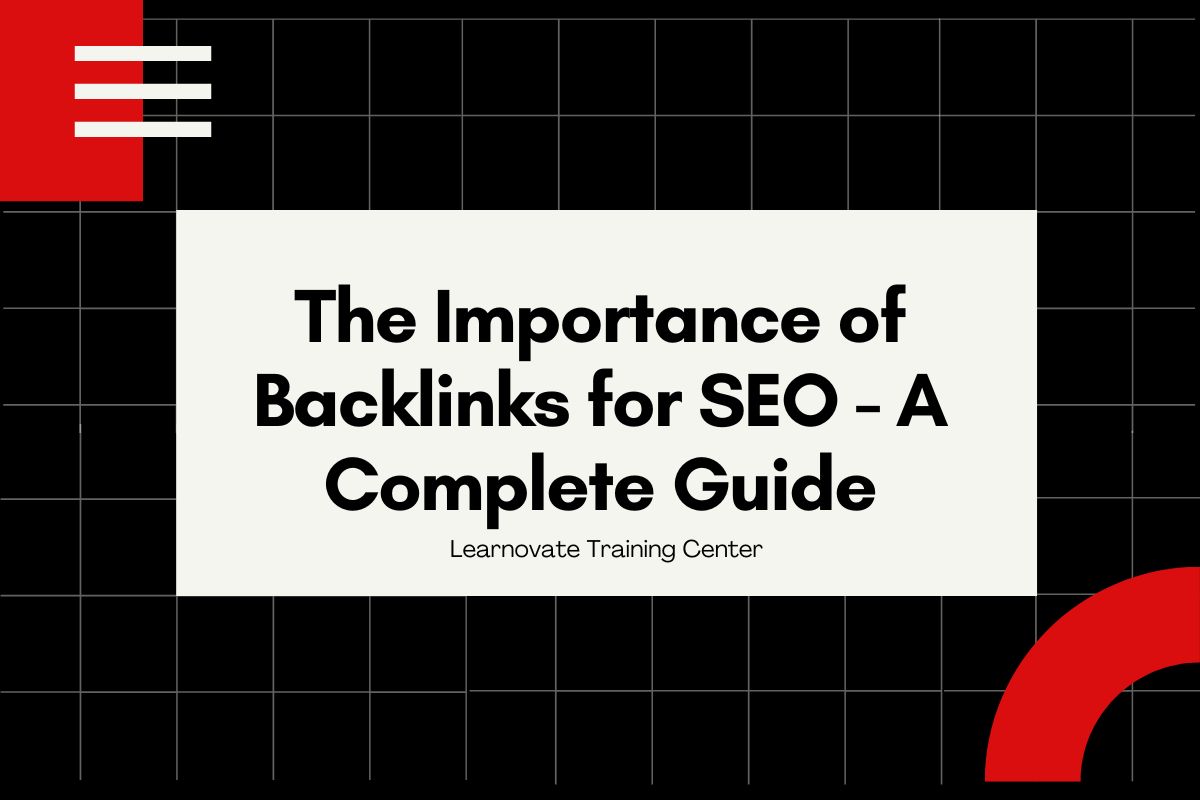In the world of digital marketing, backlinks are key. They are links from one website to another. These links help a website rank better in search engines. By using smart backlink strategies, businesses can boost their online presence and attract more visitors.
Good backlinks show a website is trustworthy and relevant. This can improve its domain authority and search rankings. This guide will explore the role of backlinks in SEO, showing their importance.
Key Takeaways
- Backlinks are vital in boosting search engine ranking and online visibility.
- Effective backlink strategies contribute to better domain authority.
- Quality backlinks can drive substantial organic traffic.
- Establishing authority through backlinks is essential for SEO success.
- Understanding the types of backlinks is vital for strategic planning.
Understanding Backlinks
Backlinks are links from other websites to yours. They help show your site’s authority and relevance online. They are key in how search engines see your website’s trustworthiness.
Inbound links, or backlinks, help your site rank better in search results. They tell search engines your content is worth sharing. This boosts your site’s visibility, bringing in more visitors and possibly more sales.
Building quality backlinks is more important than just getting many. Not all links are equal; good ones from trusted sites are more valuable. By focusing on quality, businesses can boost their online presence and rank higher in search engines.
The Importance of Backlinks for SEO
Learning about backlinks is key to getting good at SEO. A backlink is a link from one website to another. It shows that the site it links to is trustworthy. Backlinks are very important for SEO because they help a website be seen more on search engines.
Defining Backlinks
Backlinks come in two types: dofollow and nofollow. Dofollow links help search engines see the site as more authoritative. Nofollow links tell search engines not to count them, but they help with visibility. Both types are important for a good SEO plan.
Types of Backlinks
Getting backlinks from good sources is vital for SEO success. These links not only help your site rank better but also bring in more visitors. Here’s what you need to know:
- Dofollow Links: These links are recognized by search engines, helping to boost a site’s authority.
- Nofollow Links: They don’t directly help with authority, but they can bring in visitors and increase brand awareness.
Knowing the difference helps you make the most of backlinks. This way, you can improve your SEO and get more out of both dofollow and nofollow links.
How Backlinks Impact Search Engine Rankings
Backlinks are key in shaping SEO rankings. Each link is like a vote of confidence for a website. Understanding link authority and link equity helps us see how backlinks affect search engine optimization.
The Role of Link Authority
Link authority is about the credibility of sites linking to yours. High-quality links from trusted sources have more impact on SEO rankings. Several factors influence link authority:
- The reputation of the linking site
- The relevance of the content on the linking page
- The number of links pointing to that site
Building high link authority makes a site more trustworthy. This boosts its SEO strategy and improves rankings.
Understanding Link Equity
Link equity, or “link juice,” is the value passed from one webpage to another through backlinks. It’s key to understanding how links affect SEO rankings. The flow of link equity depends on:
- The quality and authority of the originating page
- The contextual relevance between the linking and receiving pages
- The type of link (do follow vs. nofollow)
When a page with high authority links to your content, it passes on a lot of link equity. This helps improve your search engine rankings and boosts your overall SEO performance.
Different Types of Links
Knowing about the different types of links is important for a website’s search engine ranking. Links are vital for a site’s structure and authority. There are mainly two types: internal and external links.
Internal links connect pages within a website. They help users find their way around and spread page authority. Using them well makes the site easier to use and improves SEO.
External links, on the other hand, lead to other websites. They add credibility and show a site is well-researched. Getting links from trusted sites can also help your site rank better.
Contextual links are special because they appear naturally in content. They’re often related to the topic being discussed. These links are more valuable for SEO because they’re relevant. Adding contextual links helps search engines see how topics are connected, which can improve your ranking.
In short, using a variety of backlinks is key for good link building. This includes internal, external, and contextual links. Such a strategy boosts search visibility and keeps users engaged on your site.
Link-Building Strategies for Effective SEO
Building strong link-building strategies is key to better SEO. Websites can boost their search engine ranking by focusing on inbound and quality external links. Here are some effective ways to do it.
Using Inbound Links Strategically
To get the most from inbound links, businesses need targeted outreach. This means:
- Find influencers and sites with authority in your field.
- Creating content that draws in specific audiences, making them want to link back.
- Getting involved in online communities and forums to build connections and share content.
These strategies help increase credibility and bring in more visitors.
Creating Quality External Links
Creating quality external links is also key for SEO success. Businesses should aim to:
- Make content that’s informative and engaging, encouraging links from top sites.
- Use guest blogging to share valuable insights and build site relationships.
- Join collaborative content projects for mutual linking benefits.
By using these methods, websites can build a strong backlink profile. This helps improve search engine rankings.
Link Popularity and Its Relevance
Link popularity is key to understanding a website’s place in the digital world. It’s not just about how many backlinks a site has. It’s also about the quality of those links. Search engines use these links to decide how well a website should rank in search results.
When we talk about link popularity, we look at several things. This includes how authoritative the sites linking to us are and where those links are placed. A site with many backlinks from trusted sources will generally have higher link popularity. This shows how important backlinks are for a website’s credibility and online presence.
Doing a competitive analysis for link popularity can give us valuable insights. It helps us see how our site stacks up against others. By learning from our competitors, we can create better strategies to boost our site’s authority. This can lead to better rankings, more visibility, and more traffic in a competitive online world.
Understanding Link Juice
Link juice is key in SEO, showing how authority and value move from one webpage to another through backlinks. It’s important for search engines to see a site’s relevance, reputation, and ranking. Knowing about link juice helps improve a site’s ranking in search results.
What Is Link Juice?
Link juice is the value passed through hyperlinks. When a trusted site links to another, it shares some of its authority. This boosts the credibility and SEO of the site it links to. The amount of link juice depends on the linking site’s authority, the link’s context, and where it’s placed.
How Link Juice Influences SEO
Managing link juice well can greatly improve a site’s visibility in search engines. Sites with many quality backlinks tend to rank higher. To make the most of link juice, consider these tips:
- Use internal links to spread authority among important pages.
- Make sure high-authority pages link to key content to increase its value.
- Keep a balanced link profile, valuing quality over quantity.
By using link juice wisely, webmasters can boost their site’s SEO and build a strong online presence. Understanding link juice helps businesses succeed in digital marketing.
Off-Page SEO and Backlinks
Off-page SEO focuses on making your website better from outside. It’s all about getting backlinks, which are links from other sites to yours. These links show search engines that your site is trustworthy and important.
Backlinks play a big role in how visible your site is online. Good backlinks can help your site rank higher in search results. Search engines see these links as proof that your site is reliable and relevant.
- Building relationships with industry influencers can result in valuable backlinks.
- Creating shareable content, such as infographics or in-depth articles, can encourage organic backlink generation.
- Participating in forums and online communities may offer opportunities to showcase expertise while earning backlinks.
To succeed in off-page SEO, you need a strong backlink profile. Focus on getting quality backlinks. This will make your site more visible and attract more visitors.
Analyzing Link Signals
Understanding link signals is key to better SEO strategies. Analyzing backlinks helps see how strong and good these links are. Good link signals mean your site is seen as valuable and trustworthy, helping it rank better.
Identifying Strong Link Signals
To spot strong link signals, look at a few important metrics. These include:
- Domain Authority: Shows how strong a domain is based on its backlinks.
- Page Authority: Tells how well a page can rank, based on its links.
- Relevance: If the linking site’s content matches your site’s niche.
- Freshness: Newer backlinks are often more valuable, showing your site is relevant.
Tools for Link Analysis
Using link analysis tools makes analyzing backlinks easier. Some top tools are:
- SEMrush: Gives deep insights into backlink performance and competition.
- Ahrefs: Offers detailed data on link signals, like anchor text and top linking sites.
- Moz: Easy to use, Moz tracks link authority and quality well.
With these tools, digital marketers and SEOs can make their strategies better. They can improve their backlink profiles and boost search engine rankings.
Measuring the Effectiveness of Backlinks
Understanding backlinks is key for digital marketing. We need to check how well they work. This means looking at different metrics to see their impact on website traffic and SEO.
Key metrics to consider include:
- Referral Traffic: Watch the number of visitors from backlinks. This shows how good a backlink is at bringing in traffic.
- Conversion Rates: See how many visitors do what you want them to, like buying something or signing up for a newsletter.
- Improvement in Search Rankings: Keep an eye on how your keyword rankings change with new backlinks. This shows the long-term success of your backlink plan.
Analytics tools are key for tracking these metrics. Use tools like Google Analytics or Ahrefs to find out which backlinks bring in the most traffic and conversions. To figure out the ROI of backlinks, compare their cost to the revenue from more traffic and conversions.
Checking these metrics often helps marketers improve their strategies. This ongoing check is key to making backlinks work better and getting the best return on investment.
Common Myths about Backlinks
Many marketers face myths about backlinks that can harm their SEO strategies. It’s key to know these myths to improve link-building. Here are some common backlink myths that need clearing up:
- Quantity Over Quality: Many believe getting lots of links boosts SEO rankings. But, it’s the quality of backlinks from trusted sites that matters more than the quantity.
- All Backlinks Are Equal: Not all links are the same in SEO value. The site and context of a link greatly affect its SEO impact. Links from top sites are more valuable than those from less trusted ones.
- Backlinks Are a One-Time Effort: Some think building backlinks is a one-time job. But, SEO needs constant work, like getting new links and checking old ones to keep your site’s authority up.
- No Follow Links Have No Value: Many think no follow links don’t help SEO. While they don’t directly help rankings, they can bring traffic and boost your brand’s visibility.
By debunking these backlink myths, marketers can make better choices. They can create link-building plans that really help their SEO.
Best Practices for Building Backlinks
Building backlinks well needs a smart plan. Following the best practices keeps your link-building honest and effective. It’s key to make high-quality content. Good articles or resources draw in links from other sites naturally.
Guest blogging is a great way to build links ethically. Writing for other sites in your field lets you reach more people and get backlinks that show you’re an authority.
- Choose sites with lots of visitors.
- Make sure your content is unique and fits the site’s theme.
- Work with site owners to build relationships.
Building connections with industry influencers is also important. Networking boosts your credibility and can open up backlink chances through collaborations or mentions.
- Join online communities and social media that matter to you.
- Share and promote their work to get noticed.
- Take part in deep discussions to show your knowledge.
Using these best practices will make your site more trusted and authoritative over time. Stay away from quick fixes or dishonest methods. They can harm your reputation and hurt your SEO success in the long run.
Potential Risks of Backlinking
Backlinking can boost a website’s SEO, but it also has risks. Using unethical link-building methods, like buying links or joining link farms, can lead to big penalties. These actions might seem good at first, but they can harm your site’s credibility and visibility in the long run.
It’s important to know about negative SEO today. Some competitors might use spammy links to hurt your site. This can lower your site’s authority and hurt your rankings on search engines.
- The impact of low-quality backlinks on overall SEO efforts
- How search engines evaluate backlinks to maintain their integrity
- Strategies for identifying and removing harmful links
Keeping your backlink profile healthy and organic is key. Stay away from unethical practices to avoid penalties. Building strong relationships in your industry is vital for lasting SEO success.
Final Thoughts
Backlinks are key for SEO. They greatly affect your site’s authority and visibility on search engines. A smart backlink strategy is vital for better SEO, as these links show your site’s credibility.
We’ve looked at different backlinks and their effects on your site’s authority. Understanding link equity and link-building best practices is essential. This helps your site grow online and attract more visitors.
Start working on your backlink profile for better SEO. By getting authoritative and relevant links, you can improve your search rankings. This will make your site more visible online.
















